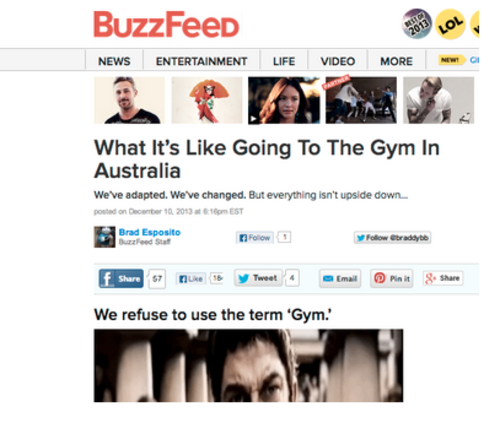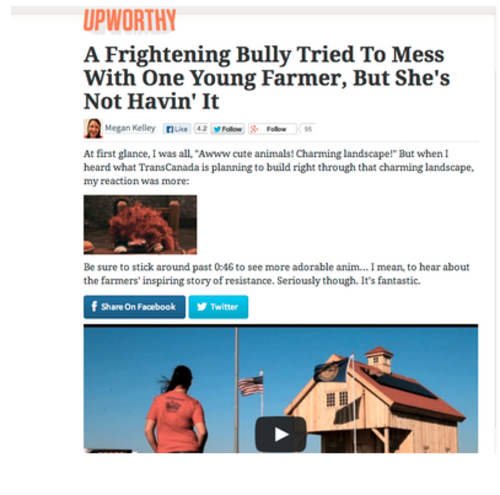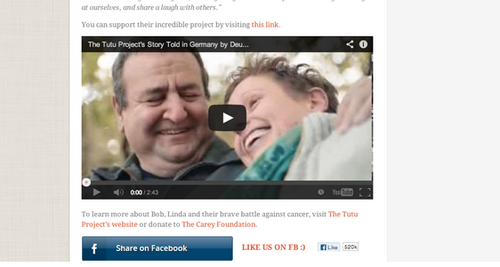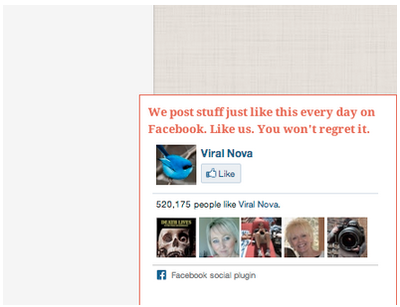For the last several years, publishers and content creators have been focused on SEO (search engine optimization). Populating their articles with the correct keywords, modifying URLs and more increasingly became important due to Google page ranks -- and the competition became cutthroat as more people understood how it worked. Those who were early in the SEO game like Demand Media (who operates eHow, Cracked and LiveStrong) succeeded immensely, but in light of Google's recent algorithm changes (Google Hummingbird), these keyword-filled articles are no longer a ticket to success.
As the SEO-focused publishers figure out how to adapt to Google's changes, a new wave of content giants -- the BuzzFeed and ViralNova -- have succeeded through an entirely different strategy. These sites aren't finding new users through Google search, they're optimizing Facebook shares, likes and comments. That's how their content goes viral and how they're acquiring a bulk of their unique visitors. Facebook reported in October 2013 that media sites saw a 170 percent increase in referral traffic over the last year from their social network -- and that percentage is only going to continue to increase given their latest algorithmic change which will pay closer attention "to what makes for high quality content, and how often articles are clicked on from News Feed on mobile." While they claim this may push "meme posts" down to the bottom of the News Feeds, if they're the most clicked on that will be difficult to do.
Jeremy Liew (a partner at Lightspeed Venture Partners) recently wrote about this phenomenon in Forbes about Facebook's algorithm change -- I decided to take a deeper look.
Publishers Value Facebook More Than Google+
Subconsciously (or consciously) publishers rank Facebook higher in their social share hierarchy making Facebook the first social network where readers are most likely going to share their content. Mostly every article page includes a list of all main social sharing sites these days promoting social distribution (Facebook, Twitter, LinkedIn, Pinterest, Reddit and Google+) and Facebook is almost always the first one in line, as opposed to Google's social sharing network Google+. Let's take look at BuzzFeed, Upworthy and ViralNova who all have been going viral through Facebook shares.
Buzzfeed ranks Facebook first and Google+ is last after Pinterest.
Upworthy also ranks Facebook first, which is followed by Twitter and Google+. However, Upworthy gives its readers multiple opportunities on Facebook, and not other social networks. A Facebook share button is available right above the designated medium (in this case it's a video).
ViralNova, the newest viral publishing site, doesn't even offer an opportunity for their content to be shared on social networks other than Facebook.
A Facebook share button is provided at the end of this article (below the curated video):
Accompanied by a slider on the article page asking readers to "like" them on Facebook (notice no Google +1's):
I think it's safe to say they're banking on Facebook shares to drive most of their traffic.
More Visits Come from Facebook
These new viral sites (like ViralNova) are most likely only directing their focus to Facebook because it's the social sharing platform that has displayed the most success. According to a report conducted by SimpleReach in October 2013, Facebook drove 62.3 percent of all social traffic across their network; that's two-fold of what Twitter contributed. The report claims Facebook is the platform sharing the majority of content on the web and the only platform that's continuing to increase in shares per quarter.
Here's the chart to see how it compares to other social networks.
The SimpleReach report claims that if this trend continues, "Facebook will be driving nearly three-quarters (72.6 percent) of social traffic by the end of Q1 2014."
Recently, BuzzFeed announced that it reached its highest traffic yet (130 million unique visitors) and it specifically thanked Facebook for contributing to its success. "Much of this growth was driven by Facebook's recent shift towards driving traffic to quality publishers," their press release read. Other publishers like Slate, The Onion, and TMZ have also seen an increase in traffic from Facebook as well, according to a chart BuzzFeed published showcasing Facebook's traffic referrals to its partner network sites.
How does this traffic referral compare to Google? Search Engine Watch reported in July 2013 that Google accounts for 25 percent of all web traffic.
No wonder why newer sites are only focused on Facebook shares.
Facebook Wants This to Happen
The bottom line is given the success Facebook shares have had on publishers recently, Facebook is going to continue to allow this to happen. Hence, their latest algorithm change which focuses on sharing high quality content and content that your friends approve of and trust. Even though they specifically say that "meme" posts may be pushed to the bottom, they're still focused on putting what is the most shared and clicked on at the top of a News Feed -- and this is how one piece of content goes viral. Not to mention that Facebook used to be a place where people could connect with friends and family, and now it's putting more of an emphasis on content. For Facebook, more social shares equal more ad dollars. If that's where content is being shared the most, that's where sites and businesses will want to be -- where potential clients are.
I don't see Google+ following a similar method and focusing on social shares.




